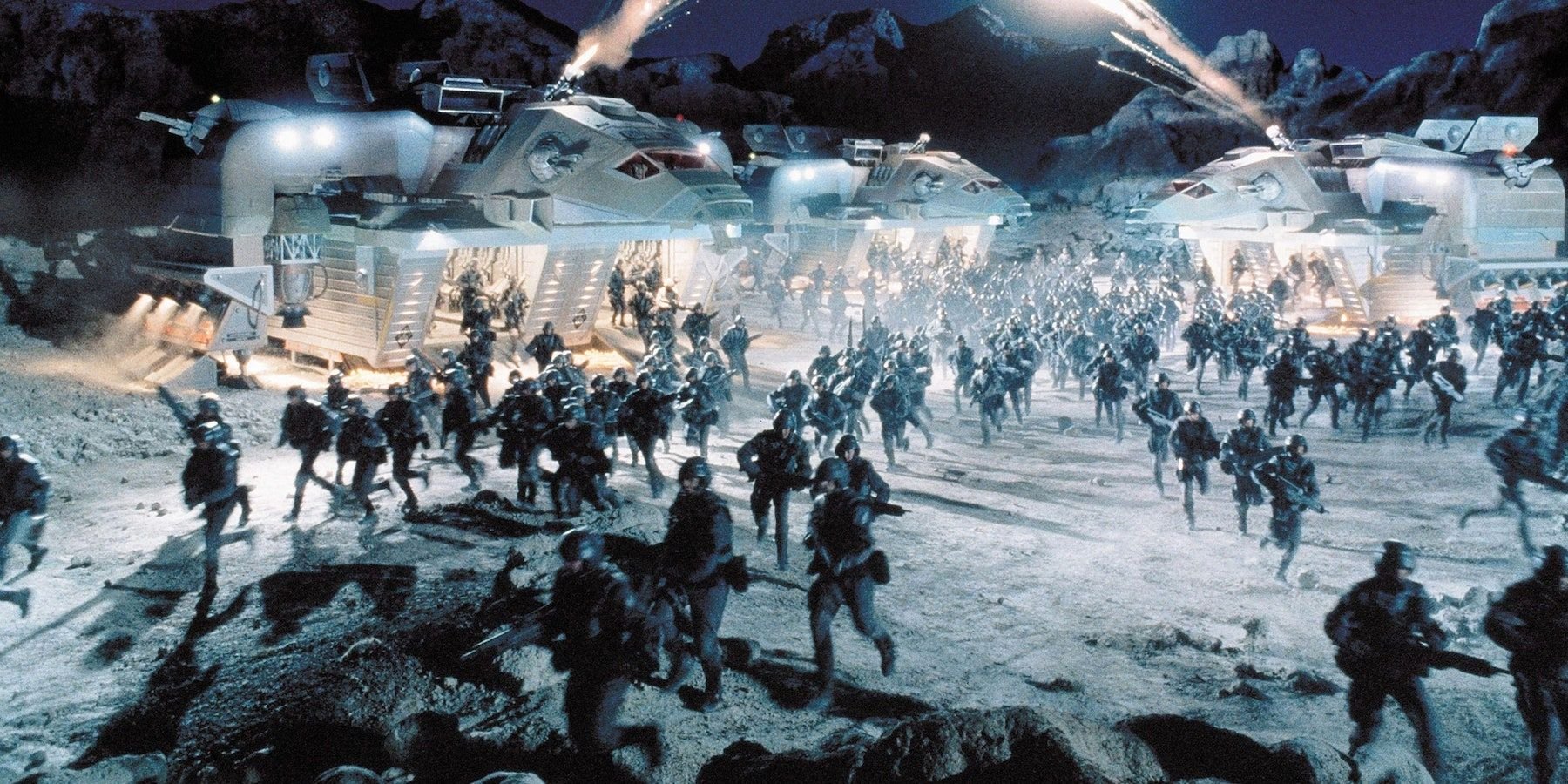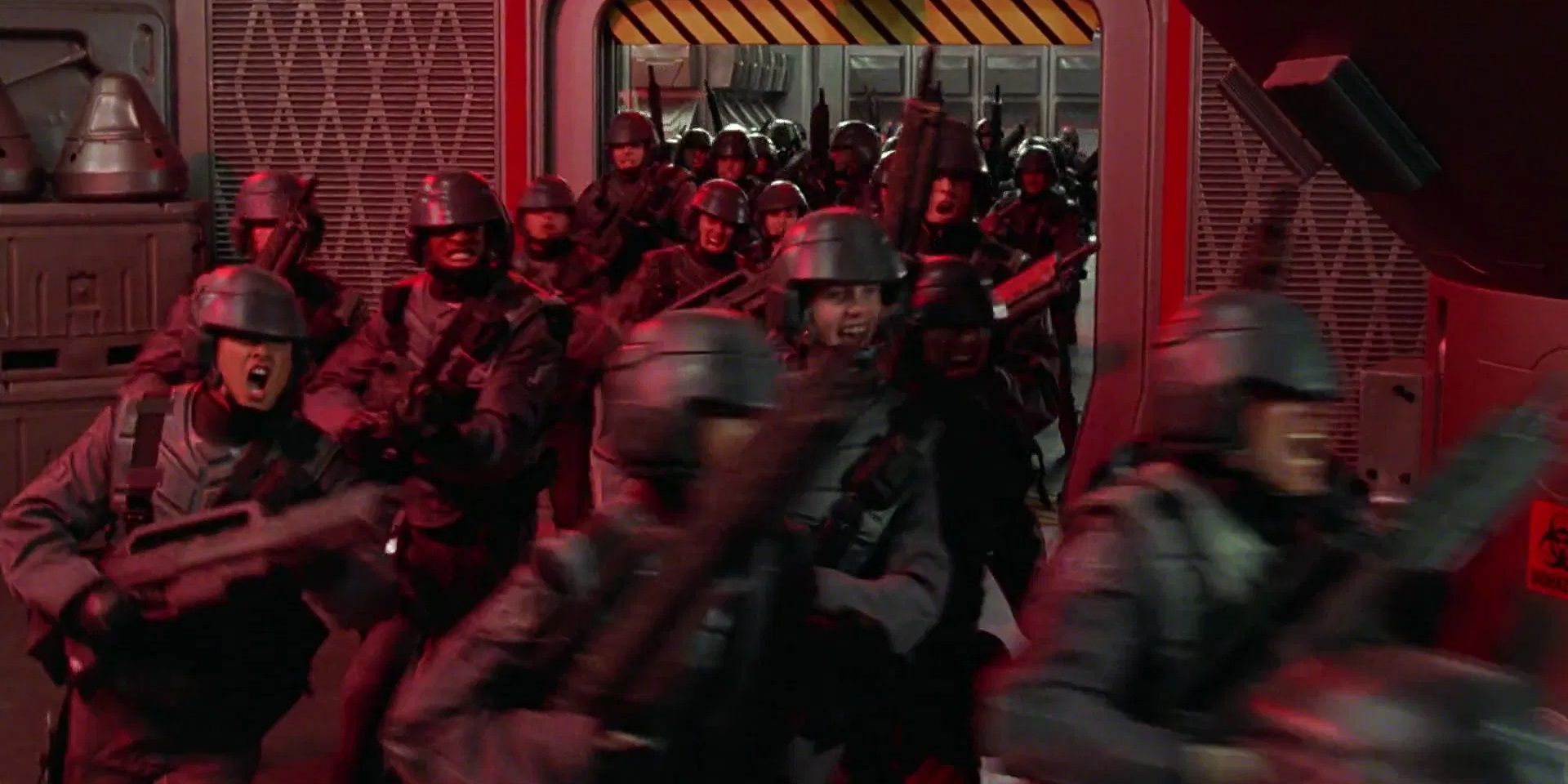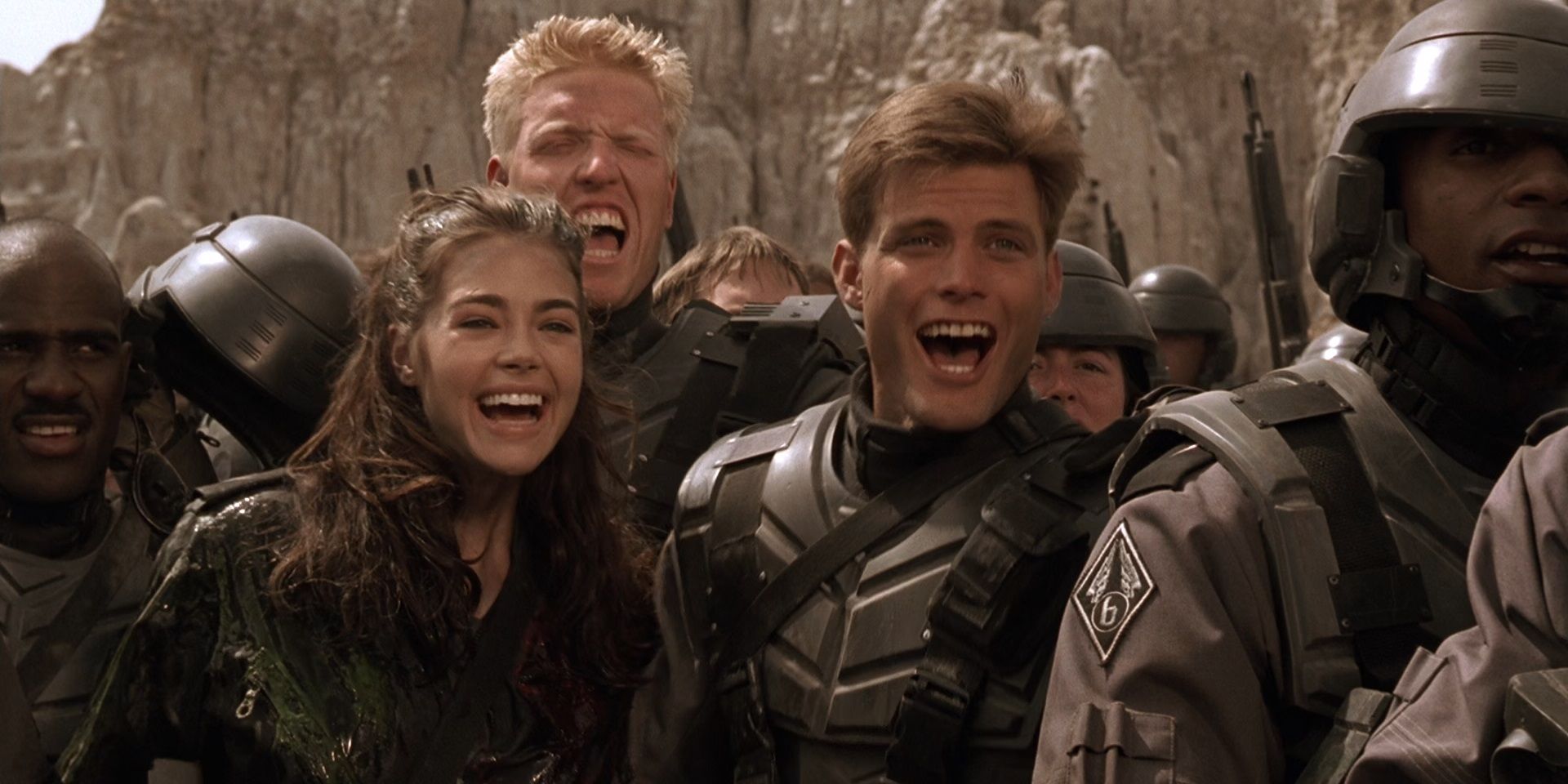
When Martin Scorsese boldly claimed that Marvel’s movies are “not cinema,” he meant that effects-driven blockbusters can’t tap into the same raw human emotions and complex thematic substance as a film like Rashomon or Diary of a Country Priest. But it would be reductive to say that no genre movie with big set pieces and visual effects can be truly classified as cinema. Paul Verhoeven’s Starship Troopers is a prime example. It’s an action-packed sci-fi spectacle about a future war with giant insects, but it’s really an incisive critique of war in general, using its bombastic battle sequences to posit that war is an inherently fascist effort.
Adapted from the 1959 novel of the same name by the great Robert A. Heinlein, Starship Troopers follows a young military recruit named Johnny Rico as he progresses through training and eventually becomes a fully qualified officer in Earth’s war against the Arachnids. On the surface, the movie is a straight sci-fi actioner about human soldiers blowing up insectoid aliens – and on its initial release, its negative critical reception pegged it as such. But it’s since been re-evaluated as a sharp political satire that uses its speculative portrayal of warfare to tap into a few fundamental ideas about war.
RELATED: Will There Ever Be A Starship Troopers Remake?
Rather than specifically satirizing American war efforts, Starship Troopers’ intergalactic warfare allowed Verhoeven to take a broader approach to lampooning humanity’s penchant for war and fascism. There are a lot of references to the Nazis, including military uniforms that resemble those of the S.S. and unmistakable visual parallels with propaganda films like Triumph of the Will. The in-universe propaganda is designed to evoke anti-Arachnid rhetoric with phrases like, “The only good bug is a dead bug.”

The insectoid monsters of Heinlein’s novel meant that Verhoeven was free to go as heavy as he wanted with the horror and oppression of war, because he wasn’t dealing with real people. Satirizing warfare is difficult with a real war, like the Cold War in Dr. Strangelove or the Gulf War in Three Kings, because the people on the other side of the conflict are just that – human beings – but when the enemy is decidedly inhuman and the war is completely imaginary, no one’s worried about political correctness.
The 1950s, the decade in which Heinlein’s original novel was published, saw the rise of “creature features” like Them! and The Deadly Mantis, which captured Cold War-era fears of an impending nuclear holocaust. Arriving after the end of the Cold War, Starship Troopers takes a sort of postmodern approach to this subtext. Instead of allegorizing any particular enemy, Starship Troopers is about humanity’s need for an enemy to vilify and fight against. It doesn’t take much nudging before humans resort to violence.
Humanity’s vicious vilification of the Arachnids in Starship Troopers holds up today as a deconstruction of extreme far-right ideologies, despite arriving two decades before those ideas made it to the political mainstream. While the original book had an unironic right-wing bias, Verhoeven’s movie adaptation takes the opposite approach. Instead of glorifying militarism like Heinlein’s story, Verhoeven pokes fun at it. The movie version overtly mocks the nationalism of U.S. foreign policy in its tale of a future Earth galvanized by a conflict against a vaguely defined extraterrestrial threat.

A lot of sci-fi movies can be hurt by political overtones, because the political message becomes a drag or the movie gets so bogged down in politics that it becomes distracted from what’s really exciting about its premise. Starship Troopers, fortunately, doesn’t have this issue. Anti-fascism satire notwithstanding, this movie is wall-to-wall fun. There’s more than enough action to satisfy audiences who aren’t interested in the social commentary and just want to watch some soldiers blow up giant bugs, but its insightful satire elevates it from an agreeable blockbuster to a thought-provoking gem.
This isn’t the only time that Verhoeven has used sci-fi spectacle and explosive action to convey interesting satirical themes. His much less underrated 1987 actioner RoboCop used its premise of a murdered police officer being resurrected by Omni Consumer Products as a well-oiled crime-fighting killing machine to lampoon Reagan’s corporation-friendly economic policies and the increasing authoritarianism in U.S. law enforcement. But where RoboCop became a huge hit with both audiences and critics, Starship Troopers failed to make a splash at the box office and didn’t win over critics until years later when it re-emerged as a cult classic.
As the current moviegoing climate keeps providing big-budget sci-fi action blockbusters without an ounce of thematic substance, the blend of action and satire in Starship Troopers is more effective than ever. While contemporary audiences were confused by Starship Troopers’ message, the genius of it is that it only gets more relevant with time, because it correctly predicted that the military-industrial complex would continue to grow out of hand.
MORE: This Kurt Russell Movie Is An Underrated Sci-Fi Masterpiece

